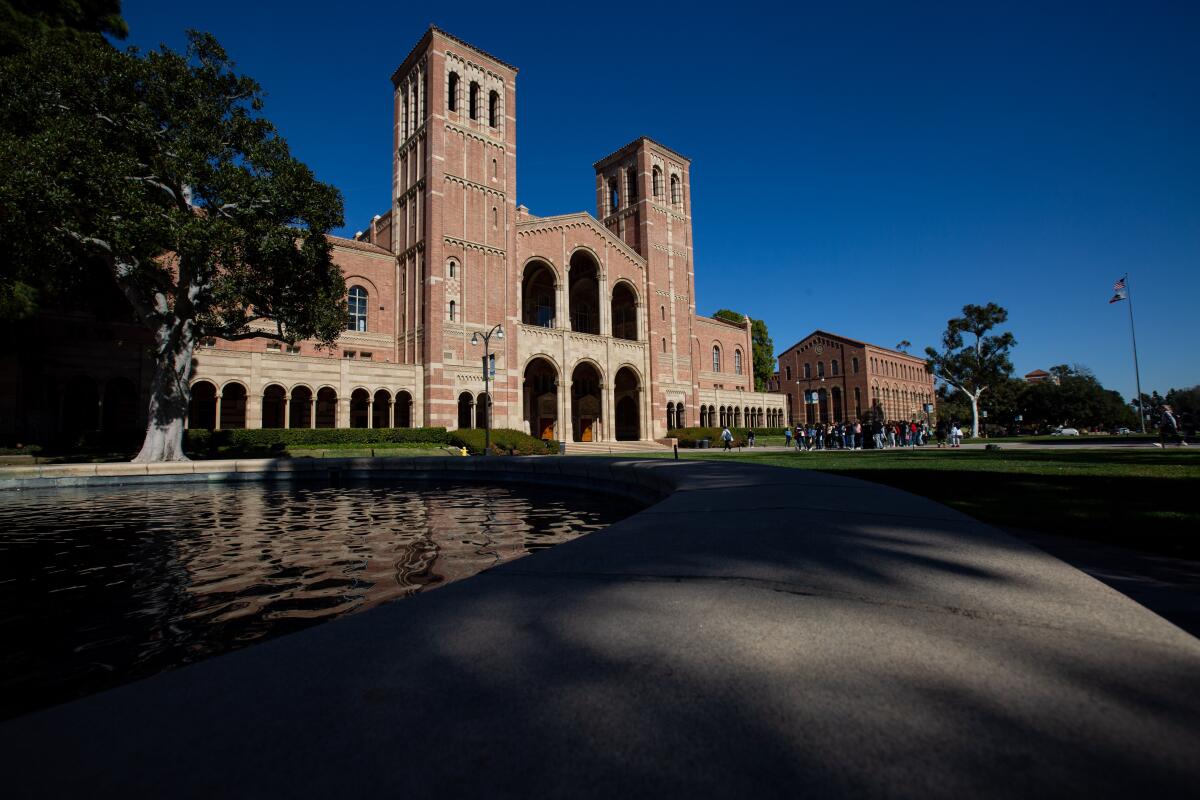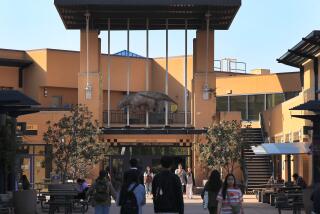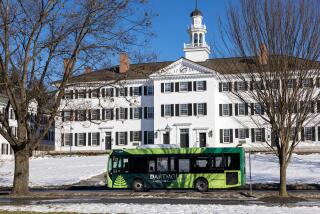UCLA smashes records for freshman applications with big hikes among Black, Latino students

UCLA has shattered national records for freshman applications — and is on track to significantly widen access to underrepresented minorities — as the number of students seeking admission for fall 2021 soared despite myriad pandemic challenges, according to data released Thursday.
Nearly 139,500 students applied to UCLA for freshman seats, a 28% increase over last year. The campus saw a historic increase in Black applicants, rising 48% over last year, and significant gains across all other racial and ethnic groups: 33% for Latinos, 35% for whites, 22% for Asian Americans, 34% for Pacific Islanders and 16% for American Indians. Asians were the largest group of applicants, followed by Latino, white and Black students.
Campus officials credited the gains to the elimination of standardized testing requirements, long years of active recruitment in underserved areas, and community partnerships to begin preparing students as early as middle school for the academic rigor needed for a competitive UCLA application.
“What we’re really passionate about is making sure that our applicant pool reflects the diversity and talent of the state,” said Youlonda Copeland-Morgan, vice provost for enrollment management. “The entire UCLA community takes seriously our responsibility as a public institution to make sure that all students, regardless of their backgrounds ... have an opportunity to be prepared for and apply to UCLA.”
Overall, the University of California’s nine undergraduate campuses also drew a record number of applicants —
249,855 applications, a 16.1% leap from the past year. Black applicants increased by 21.8% over last year, while Latinos — who again made up the largest proportion of Californians seeking UC seats — rose by 12.2%.
“Our record number of applications is a testament to the resilience of students and their families as well as their undeterred focus on higher education,” UC President Michael V. Drake said in a statement. “Californians continue to see us as the pathway for a better future.”
UC Berkeley also made major gains in applicants from underrepresented communities, with increases of 47.6% for Black applicants and 36% for Latinos; overall freshman applications surged by 28%. UC Irvine was the most popular campus for California applicants who are the first in their families to attend college, making up 47% of those seeking admission.
The double-digit growth in UC applications comes despite challenges created by the COVID-19 pandemic. After high schools shut down, shifting to online instruction, many students struggled to achieve the traditional hallmarks of a strong college application: high grades in rigorous AP and honors courses, distinctive extracurricular activities and competitive SAT and ACT test scores. The pandemic also disrupted college counseling, which was more difficult to arrange online than dropping by the school’s counseling office for face-to-face meetings.
UC’s gains are in line with the 16% increase in applications at large universities that are among the 900-plus private and public campus members of the Common Application, a nonprofit organization. Smaller campuses, however, saw a 3.5% decline in applications, according to Common App CEO Jenny Rickard.
Rickard said a likely reason for the surge was the change in standardized testing requirements, with 85% of her members eliminating them or making them optional because the pandemic significantly limited opportunities to take the SAT and ACT last year. UC dropped the requirements entirely for fall 2021 applicants under a court order issued in litigation involving students with disabilities.
“I think removing and changing the testing requirements really motivated some students to pursue their dream of attending UCLA,” Copeland-Morgan said.
Research has found that removing standardized testing requirements increases application rates by up to 10% for the first few years, said Zachary Bleemer, a research associate at the UC Berkeley Center for Studies in Higher Education.
In an unexpected pandemic impact, students had more time to complete college applications because they were “stuck at home all day,” said Ruth Garcia, a Downtown Magnets High School senior. She said some of her friends told her they would not have applied to UC campuses otherwise.
“They couldn’t do community service. They weren’t out doing this or that club or basketball practice,” said Lynda McGee, a Downtown Magnets college counselor. “So they had time to get their applications finished.”
Garcia, who applied to UCLA and several other UC campuses, said her school also put a lot more information about the college application process online with a new College Center website and Instagram account. “We’re all on the computer all the time now so we have a lot more access to information,” she said.
UCLA also received 28,500 applications from community college transfer students, a 10% increase over last year, according to the preliminary data. Systemwide, transfer student applications increased by 7.5%.
And the Westwood campus bucked a national decline in freshman applicants who are low-income or the first in their families to attend college, with increases of 25% and 28%, respectively, for each group.
Even as UCLA hailed the gains, however, Copeland-Morgan said the university plans to slightly reduce the size of the incoming 2021 class as it completes a five-year growth plan. Last year, the campus offered admission to about 15,600 of 109,000 freshman applicants. Admission decisions will be sent out by April 1.
More to Read
Start your day right
Sign up for Essential California for news, features and recommendations from the L.A. Times and beyond in your inbox six days a week.
You may occasionally receive promotional content from the Los Angeles Times.







